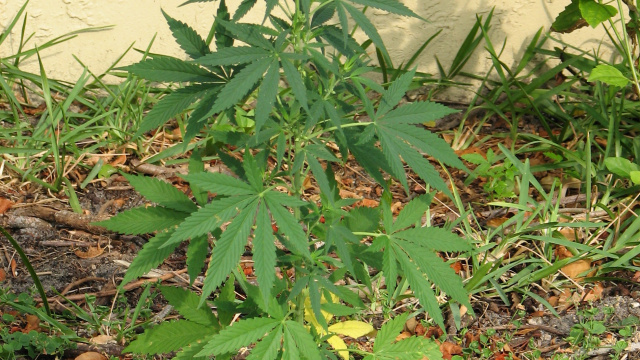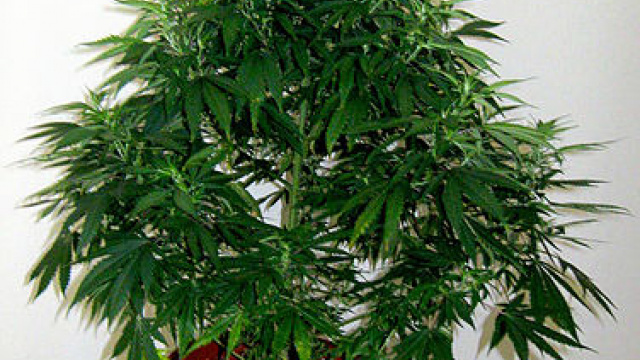 Some cannabis growers may soon find themselves with a lot less irrigation water if the U.S. government decides to block the use of federal water for state-legal marijuana cultivation.
Some cannabis growers may soon find themselves with a lot less irrigation water if the U.S. government decides to block the use of federal water for state-legal marijuana cultivation.
The U.S. Bureau of Reclamation, which oversees management of federal water resources, “is evaluating how the Controlled Substances Act applies in the context of Reclamation project water being used to facilitate marijuana-related activities,” said Peter Soeth, a spokesman for the bureau. He said the evaluation was begun “at the request of various water districts in the West.”
Local water districts in Washington state and Colorado, where recreational marijuana is now legal, contract with federal water projects for supplies. Officials from some of those water districts said they assume the feds are going to turn off the spigots for marijuana growers.
“Certainly every indication we are hearing is that their policy will be that federal water supplies cannot be used to grow marijuana,” said Brian Werner at Northern Colorado Water Conservancy District, which handles approximately one-third of all water for northeastern Colorado and is the Bureau of Reclamation’s second-largest user in the number of irrigated acres.
Washington state’s Roza Irrigation District, which supplies federal water to approximately 72,000 acres in Yakima and Benton counties, has already issued a “precautionary message” to water customers that may be involved in state-legal cannabis growing.
“Local irrigation districts operating federal irrigation projects have recently been advised that under Federal Reclamation Law, it is likely project water cannot be delivered and utilized for purposes that are illegal under federal law,” wrote Roza district manager Scott Revell in letters to the Yakima and Benton county commissioners. “Presumably growing marijuana would fall into this category.”
Both Washington and Colorado legalized marijuana for medical use more than a decade ago. Pot remains illegal under federal law. Reclamation’s Soeth said that the issue of cutting off water supplies for marijuana has never come up before.
A Department of Justice official told HuffPost it has no comment on the water issue. The Bureau of Reclamation is likely to announce a decision this month. “We’re going to work with our water districts once that decision is made,” Soeth said.
Marijuana advocates condemned the possibility of a federal water ban for state-legal crops. Mason Tvert, communications director for Marijuana Policy Project and key backer of Amendment 64, which legalized marijuana for recreational use in Colorado, criticized the hypocrisy of a federal government that would prevent water access to some legal businesses and not others.
“If water is so precious and scarce that it can’t be used for state-legal marijuana cultivation, it shouldn’t be used for brewing and distilling more harmful intoxicating substances like beer and liquor,” Tvert said.
The impact on Washington may be more severe, since the state’s marijuana laws allow for outdoor growing and, according to McClatchy, the Bureau of Reclamation controls the water supply of about two-thirds of the state’s irrigated land. In Colorado, marijuana businesses can only grow indoors.
Indoor growing in Denver, home to the majority of Colorado marijuana dispensaries, likely wouldn’t notice a shortage if the Bureau of Reclamation cuts off federal water.
“Because we are not a federal contractor, we would not be affected,” said Travis Thompson, spokesman for Denver Water, the main water authority for the state’s capital and surrounding suburbs.
But many other regions of the state rely on federal water. In Pueblo, about two hours south of Denver, about 20 percent of regional water is Reclamation-controlled. Although the remaining 80 percent of the region’s water is locally controlled, it passes through the Pueblo Dam, operated under Bureau of Reclamation authority.
“Yes, they come through a federal facility, but the federal facility is required to let those water right to pass,” Pueblo Board of Water Works executive director Terry Book said to southern Colorado’s NBC-affiliate KOAA.
The St. Charles Mesa Water District, another Pueblo-area water facility, has already imposed a moratorium on supplying water to marijuana businesses until the Bureau of Reclamation settles the issue.
The Bureau of Reclamation said its facilities deliver water to 1.25 million acres of land in Colorado and 1.2 million acres in Washington state. About 1.6 million acre-feet of water is delivered to Colorado’s agricultural sector from Reclamation and about 5 million acre-feet is delivered to agriculture in Washington.
As McClatchy reported last month that there are several viable alternatives to using federal water. Small-scale marijuana-growing operations may be able to use city-controlled water sources, or drill a well. Greenhouse growers are allowed to use up to 5,000 gallons of well water per day under state law. Any use beyond that requires a permit from the state. While some marijuana plants can require an average of six gallons of water per day, growing operations in the state are likely to fall well within that limit.
However, in areas of the state where much of the water is controlled by Bureau of Reclamation contracts, these alternatives aren’t as accessible.
The potential water ban has already set off local opposition. The Seattle Times’ editorial board urged the Bureau of Reclamation to allow federal water contracts to be used by marijuana farmers.
“The bureau has never had — nor should it have — a stake in what crop is planted. That’s a basic tenet of the 1902 National Reclamation Act, which created the bureau and transformed the arid American west,” read the May 4 editorial. “Yet the federal government is now threatening to forget that history, because some regulators are queasy about Washington and Colorado’s experimentation with marijuana legalization.”
As the Times’ board points out, there is some precedent for the Justice Department to stand down on the water issue. Last August, Attorney General Eric Holder told the governors of Washington and Colorado that the DOJ wouldn’t intervene in the states’ legal pot programs. And earlier this year, federal officials issued guidelines expanding access to financial services for legal marijuana businesses, so long as the business doesn’t violate certain legal priorities outlinedby the Justice Department.
“While we appreciate how the Obama administration has made some administrative concessions to the majority of voters who support legalization by issuing banking guidelines and having the Justice Department largely stand out of the way of state implementation, this water issue highlights the urgent need to actually change federal law,” Tom Angell, chairman of Marijuana Majority, told The Huffington Post. “There are bills pending in Congress that would solve this and other state-federal marijuana policy discrepancies, but so far the support from elected officials doesn’t even come close to matching the support from the public. I expect that gap will shrink with each passing election cycle as politicians start to see just how popular this issue is with voters.”
Source: Huffington Post (NY)
Author: Matt Ferner and Mollie Reilly
Published: May 19, 2014
Copyright: 2014 HuffingtonPost.com, LLC
Contact: [email protected]
Website: http://www.huffingtonpost.com/



Leave a Reply